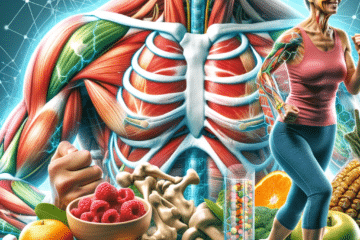
A paper we are going to discuss raises an important question: Can you be healthy despite not moving enough or exercising? Based on the paper’s results, I believe that the answer is clear—no, you are not healthy. You just aren’t aware of it yet.
We’ve discussed the reasoning behind this statement many times in the past, and I also went over this in my book. Most metabolic disease states that lead to our demise are “area-under-the-curve” issues. That means the longer these profound metabolic changes exist under the radar, the more damage is done. Eventually, this will reflect itself clinically, but not until you are between 45 and 65.
A recent paper by Iñigo San-Millán and colleagues focuses on the metabolic and cellular differences between “healthy sedentary” and moderately active individuals, both at rest and during exercise. My partner at Simplavida and I put out a podcast on this paper if you’re interested in that version.
I included the technical details published for a reason. The differences between healthy sedentary people and those who exercised weren’t small—they were dramatic. People who are sedentary do not properly manage glucose or fat for energy. They cannot process lactate for energy very efficiently… yes, lactate is a fuel. They produce more free oxygen radicals which can accelerate aging… and much more.
Keep in mind that throughout tens of thousands of years of evolution, our bodies were engineered to move. Our bodies are optimized to move. Our complex internal processes do not work well if we are not moving.
Here are the key points and interpretations from the paper:
1. Impact on Mitochondrial Function:
- Sedentary individuals show a significant decrease in mitochondrial respiration capacity across multiple components:
- Complex I (36% lower)
- Complex II (28% lower)
- Total electron transport system capacity (34% lower)
- These deficits in mitochondrial function impair both energy production and the ability to metabolize carbohydrates and fats efficiently. Essentially, sedentary people have “weaker” mitochondria, making their energy production less effective… even at rest.
2. Pyruvate and Fat Oxidation:
- Sedentary individuals exhibit a 37% reduction in mitochondrial pyruvate oxidation, indicating that their cells are less capable of converting glucose to energy. This happens even though glucose transporters (GLUT4) are expressed at similar levels in both sedentary and active groups.
- Fat oxidation is also impaired in sedentary individuals by 35%, meaning they have less capacity to burn fat, contributing to metabolic issues like insulin resistance over time.
- A reduction in the activity of enzymes responsible for transporting and metabolizing fats (such as carnitine palmitoyltransferase I and II) further exacerbates this problem.
3. Higher ROS Production:
- Sedentary individuals generate more reactive oxygen species (ROS) normalized to oxygen flux, implying that their mitochondria are “leakier” and less efficient, which could lead to cellular damage. Increased ROS production is associated with aging and the development of multiple diseases, including type 2 diabetes (T2D), cardiovascular disease (CVD), and neurodegenerative disorders.
4. Lactate Clearance and Metabolic Flexibility:
- During exercise, sedentary individuals exhibit reduced capacity to clear lactate, indicating poor metabolic flexibility. This means they are less capable of using fat for energy and switch to inefficient glucose fermentation more quickly during exertion.
- Active individuals, by contrast, display superior lactate clearance, fat oxidation, and overall metabolic efficiency, suggesting that even moderate physical activity significantly improves the body’s ability to handle both glucose and fat metabolism.
5. Molecular Signatures and Health Implications:
- The study reveals that metabolic impairments, particularly in mitochondrial function, begin early in sedentary individuals—even before the onset of clinical symptoms of diseases like T2D or metabolic syndrome.
- These impairments are likely to contribute to the development of non-communicable diseases (NCDs) over time, making it clear that “healthy sedentary” is somewhat of a misnomer. Even in the absence of obvious disease, these individuals have significant cellular dysfunction that could lead to future health complications.
6. Exercise as a Powerful Intervention:
- The findings strongly suggest that exercise should not be viewed as an optional intervention but rather as a crucial element of human health. Exercise boosts mitochondrial function, increases fat oxidation, and reduces ROS production, thereby potentially preventing a range of diseases.
- Given the strong correlations between mitochondrial function at rest and during exercise, the authors propose that cardiopulmonary exercise testing (CPET) could serve as a non-invasive method to assess metabolic health in the general population.
- In addition… although the world is focused on wearing continuous glucose monitors… it appears that wearing continuous lactate monitors will be able to give us a far more meaningful and actionable means of seeing how our bodies respond to exercise and other healthy interventions.
Overall Interpretation:
- The paper argues that metabolic and mitochondrial impairments in sedentary individuals are far more severe than previously thought and that these early signs of dysfunction may be crucial in the onset of chronic diseases like T2D, CVD, and even Alzheimer’s disease.
- Moderate physical activity dramatically improves cellular bioenergetics, metabolic flexibility, and fat oxidation, suggesting that even modest exercise is essential to maintain metabolic health.
- This research challenges the idea that people can be “healthy” while sedentary, emphasizing that a lack of exercise leads to profound cellular downregulation that could have long-term health consequences.
In summary, the study provides strong evidence that exercise is essential for maintaining optimal mitochondrial function, fat metabolism, and overall metabolic health. Even “healthy” sedentary individuals experience significant cellular dysfunction that can pave the way for chronic disease, reinforcing the need for physical activity as a cornerstone of health.
Do you have questions regarding an Orthopedic injury or longevity?
Do you want to talk to an expert who can listen to you for 45-60 minutes and explain the options in detail?
Dr. Howard Luks offers remote guidance sessions to review your X-ray or MRI images and explain your options.
Dr. Luks has also received hundreds of requests for educational sessions on the topics discussed in his book, Longevity Simplified.











